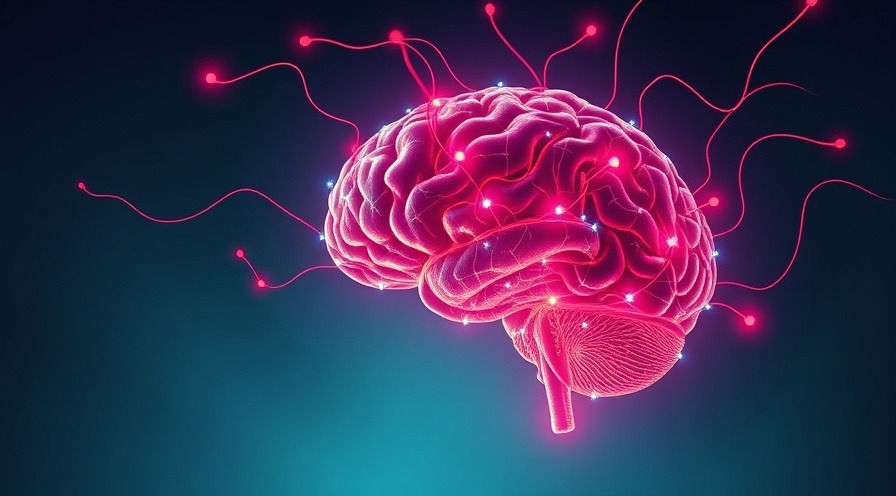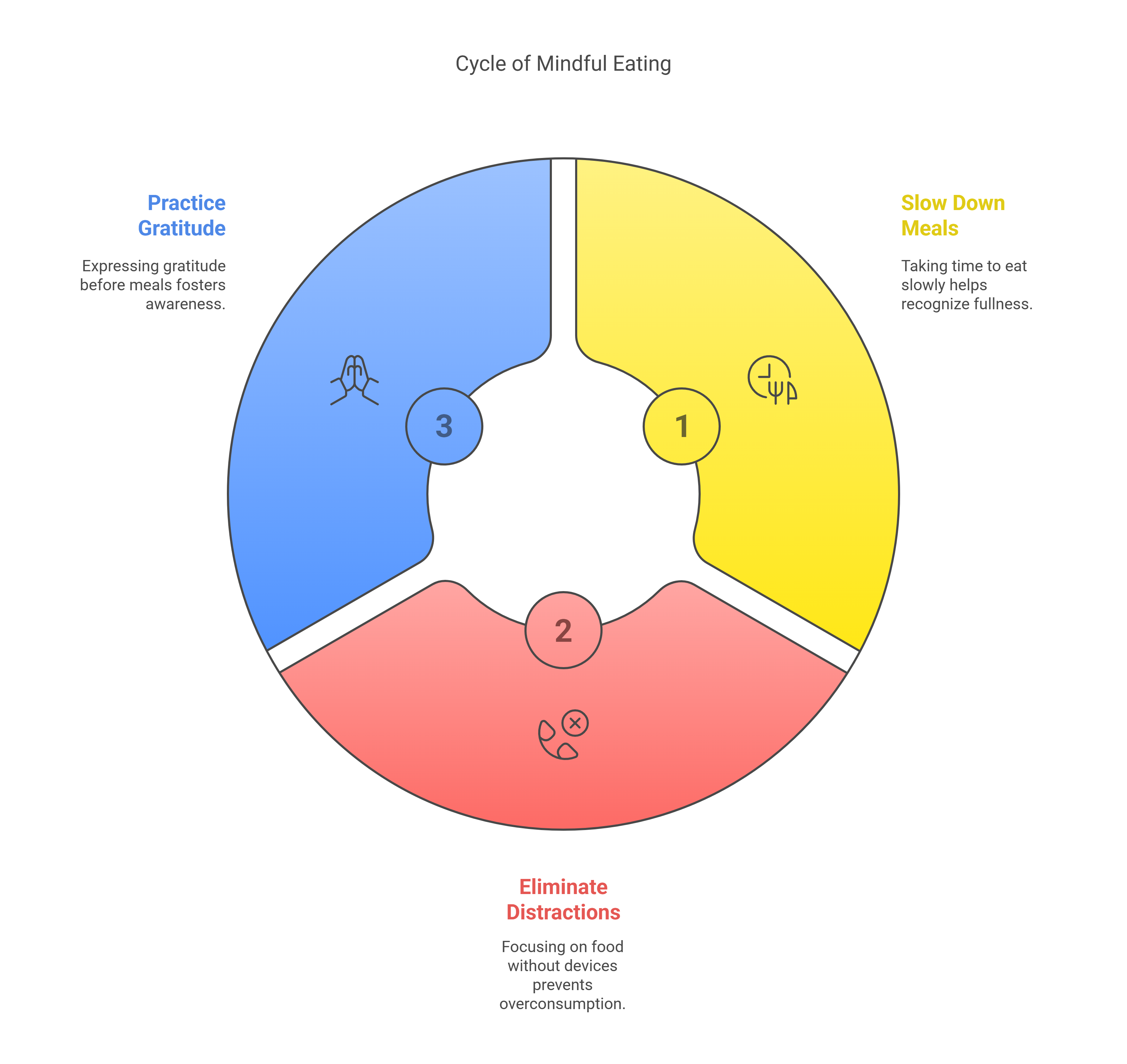
Sweet Freedom: How Mindful Eating Can Break Your Sugar Addiction for Good
In a world where sugar is hidden in everything from pasta sauce to protein bars, many of us find ourselves caught in a cycle of cravings that feels impossible to escape. But what if the key to conquering your sugar addiction isn't just about willpower or following another restrictive diet? What if it's about understanding the psychology behind your relationship with those sweet treats?
The Brain on Sugar: Why We're Hooked
Think about it: sugar is sneaky. One minute you're enjoying a "small treat," and the next you're elbow-deep in a cookie jar wondering what happened.
According to Dr. Nicole Avena, a neuroscientist at Mount Sinai School of Medicine and author of "Why Diets Fail," there's a reason for this phenomenon:
"Sugar activates the opiate receptors in our brain and affects the reward center, which leads to compulsive behavior, despite the negative consequences like weight gain."
This explains why that afternoon sugar fix feels less like a choice and more like a necessity. Your brain has been hijacked, literally rewired to seek out the next sweet hit.

Mindless vs. Mindful: The Consumption Gap
Most of us consume sugar on autopilot. You're stressed, you reach for chocolate. You're celebrating, you order dessert. You're bored, you grab a soda. These automatic behaviors bypass our conscious decision-making, creating a direct pipeline from trigger to sugar consumption.
Mindful eating disrupts this autopilot mode by inserting awareness into the equation. Here's how to start:
1. Pause Before You Consume
The next time sugar cravings strike, take a 5-minute pause. During this time, ask yourself:
What am I feeling right now?
Am I actually hungry, or is this emotional eating?
Will this food truly satisfy what I need?
This tiny delay creates space between the urge and the action, giving you back the power of choice.
2. Practice the "First Three Bites" Rule
Sugar's strongest sensory impact occurs during the first few bites. After that, diminishing returns set in—you're eating more but enjoying it less.
Try this: Fully concentrate on the first three bites of any sweet treat. Experience the texture, flavor, and sensation without distraction. Then ask yourself if continuing will actually increase your pleasure or if you're just eating out of momentum.
3. Identify Your Sugar Triggers
Sugar cravings rarely exist in a vacuum. They're usually tied to specific triggers:
Emotional states (stress, sadness, boredom)
Times of day (that 3 PM slump)
Social situations (office birthday celebrations)
Environmental cues (passing by your favorite bakery)
Dr. David Ludwig, professor of nutrition at Harvard School of Public Health, notes:
"Understanding your personal triggers is crucial for breaking the cycle. Most sugar cravings aren't about hunger—they're about habit, emotional needs, or blood sugar fluctuations."
Keep a simple journal for a week, noting when cravings hit and what might have triggered them. Patterns will emerge, giving you valuable insight into your personal sugar landscape.

Rewiring Your Reward System
The good news? Your brain's reward system is plastic—it can change. The bad news? It takes time and consistent effort. Here's how to rewire those sugar-seeking neural pathways:
1. Create New Pleasure Pathways
Your brain craves not just sugar but the dopamine hit that comes with it. Give yourself alternative sources of pleasure:
Take a short walk outside
Call a friend who makes you laugh
Listen to your favorite upbeat song
Stretch or do a quick yoga pose
The key is immediacy—these alternatives need to be easily accessible when cravings hit.
2. Practice Mindful Distress Tolerance
Many of us use sugar to numb uncomfortable feelings. Instead of avoiding these feelings, try sitting with them for just 90 seconds (the typical duration of an emotional wave).
Notice physical sensations without judgment. Often, the urge passes when we stop fighting it and simply observe it with curiosity.
3. Celebrate Small Wins
Rewired neural pathways require positive reinforcement. Celebrate progress, not perfection:
Successfully navigated the office donut box? That's a win.
Chose to have one cookie instead of the whole package? Victory!
Noticed you were eating from stress and took a breather instead? Major triumph.

The Mindful Eating Toolkit
Beyond these strategies, these practical tools can help incorporate mindfulness into your daily eating habits:
The 20-minute meal: It takes about this long for your brain to register fullness. Slow down, and those dessert cravings might naturally diminish.
Phone-free eating: Distracted eating leads to overconsumption. Make meals a technology-free zone.
Gratitude before grazing: Before eating anything, take 10 seconds to express gratitude for the food in front of you. This small ritual creates awareness and intention.
The Sweet Spot: Balance Over Perfection
Remember, the goal isn't to eliminate sugar entirely—that's often unsustainable and can backfire into binge episodes. Instead, aim for what psychologists call the "sweet spot" of moderation.
As registered dietitian Evelyn Tribole, co-author of "Intuitive Eating," puts it: "The paradox is that when you give yourself unconditional permission to eat what you truly want, the urgency and intensity of cravings often diminish significantly. It's restriction that tends to amplify cravings."
Your Mindful Journey Begins
Breaking a sugar addiction isn't just about what's on your plate—it's about what's happening in your mind. By bringing awareness to your consumption patterns, understanding your triggers, and cultivating alternative sources of pleasure, you can gradually change your relationship with sugar.
You will need to treat this as more than a race or a test of willpower. It's a journey of self-discovery that happens one mindful bite at a time. The sweetest victory isn't giving up sugar—it's gaining back your choice about when, how, and why you enjoy it.
What mindful strategies have helped you manage sugar cravings? Share your experiences in the comments!
You Might Also Like: Tips for Reducing Sugar Intake: Embrace a Healthier Lifestyle (Click here)
 Add Row
Add Row  Add
Add 




 Add Row
Add Row  Add
Add 

Write A Comment